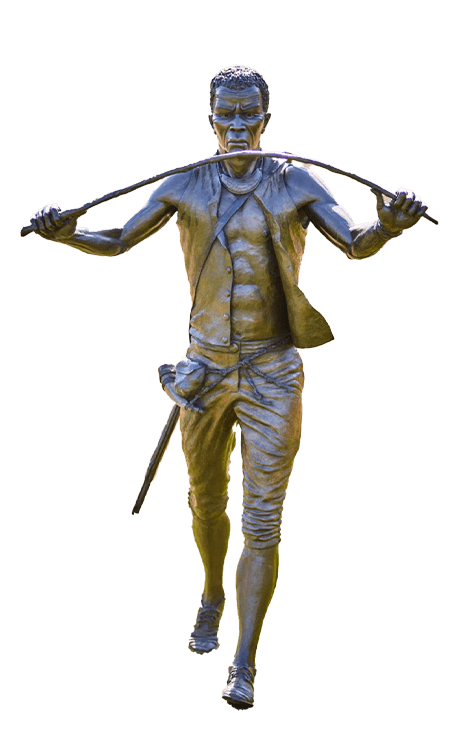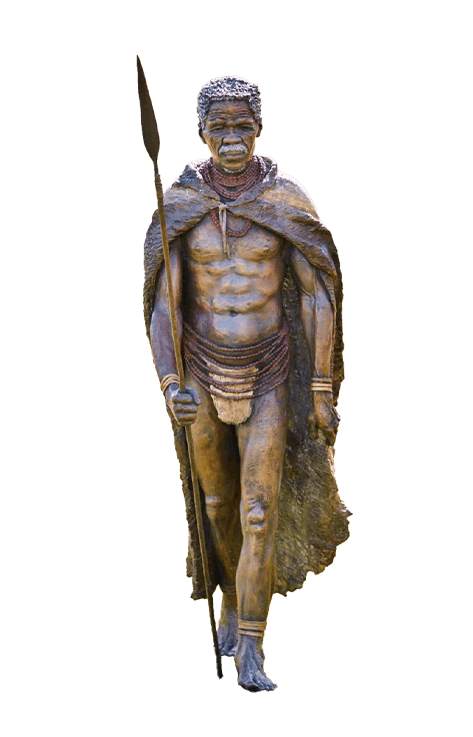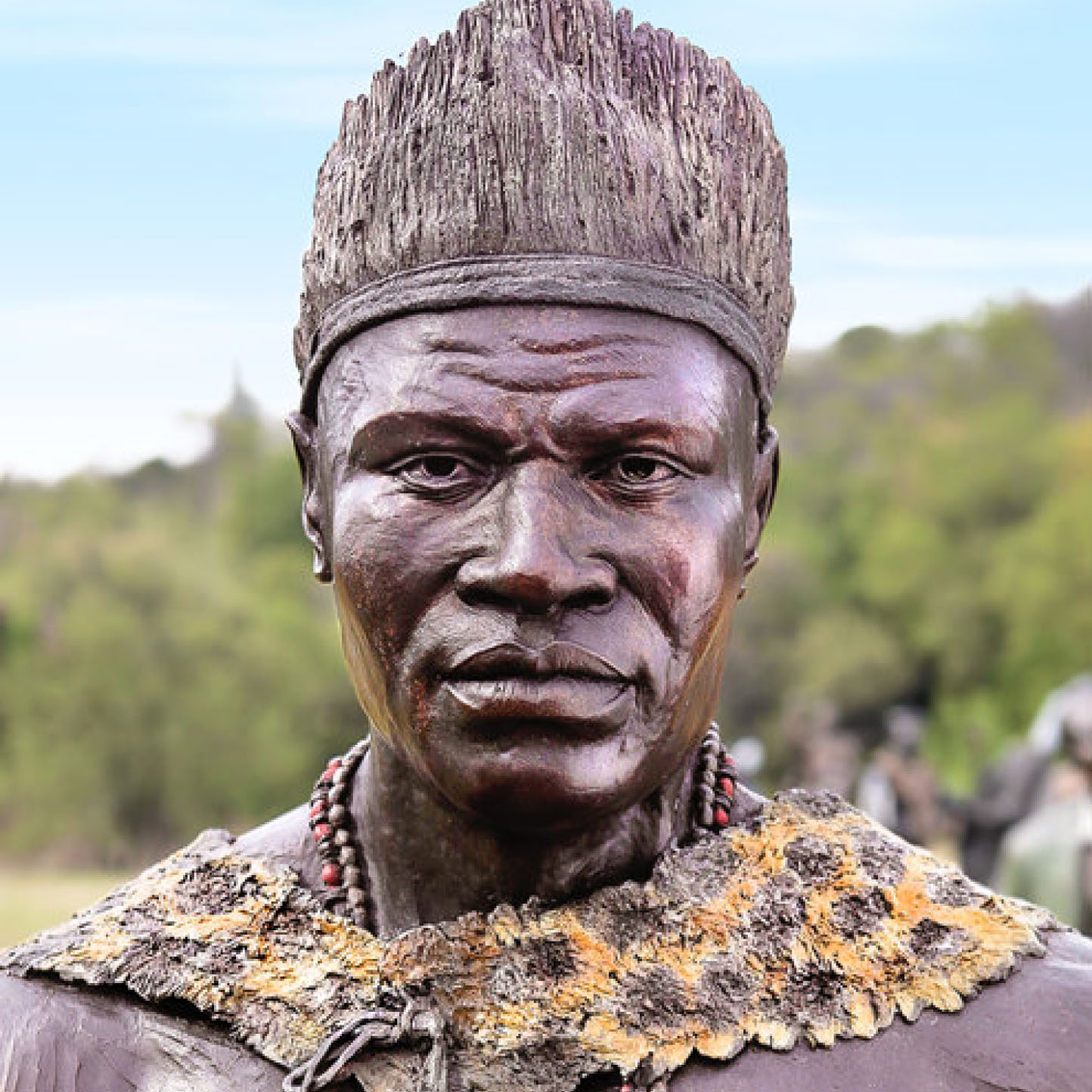
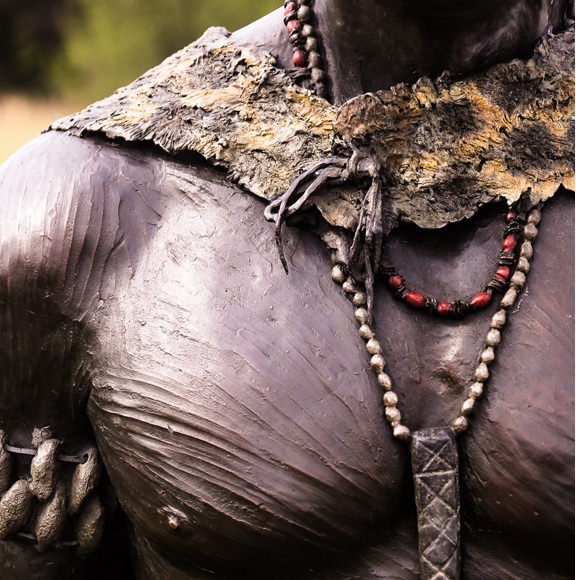
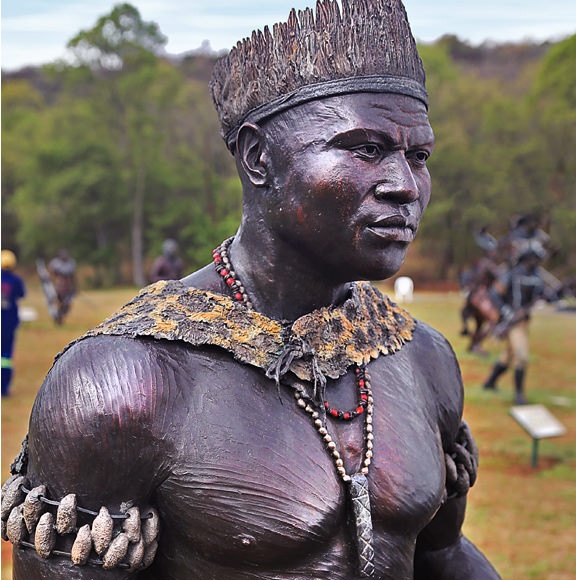
""
Chief Tshwane
MID-1700S
Son of Ndebele Chief Mushi
Chief Tshwane was a leader who, according to oral history, inhabited the area now known as Tshwane before the Boer trekkers arrived in the mid-1800s.
He is believed to be the son of Chief Mushi, an Ndebele king who led his people from Maponong to what later became known as Transvaal, settling first east of the city at the origin of Moretele River.
Chief Mushi moved to the region in the early 1800s and first settled at Mokgapane (Mooiplaas, east of Pretoria), later moving to what is now Pretoria and gave an area near the present-day Apies River to his son, Tshwane. The indigenous name for the Apies River is the Tshwane River, in honour of chief Mushi's son.
The origin of the name 'Tshwane' is open to speculation. One explanation says it originates from the Setswana word 'tshwana' meaning 'black cow' and describes a rainmaking ceremony wherein water was drawn from the 'Tshwane River' and sprinkled on a black cow in a rain-making ritual. Hence the name 'Tshwane', meaning 'place of the black cow'.
Pretoria, founded in 1855, was named after Voortrekker leader Andries Pretorius. In 2005 the democratic government replaced the name Pretoria with Tshwane.
A compromise, it named the metropolitan municipality The City of Tshwane, with Pretoria as its capital.
